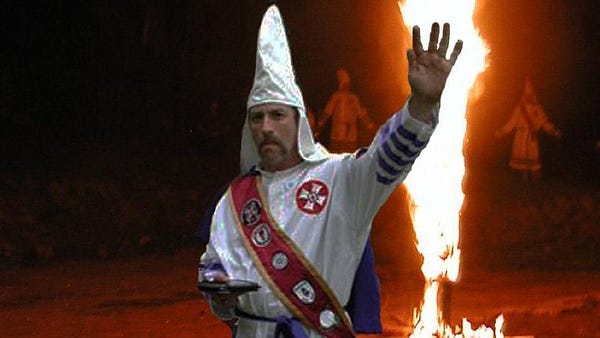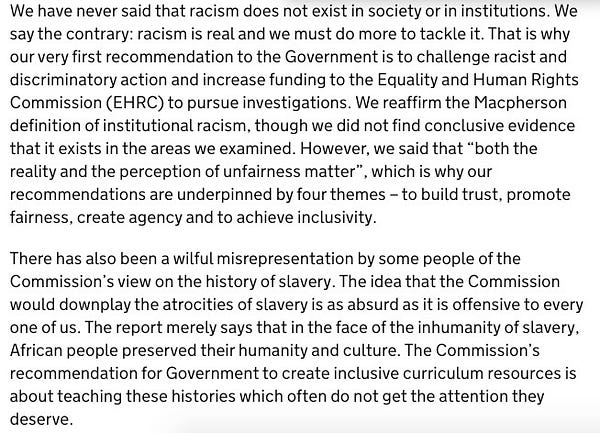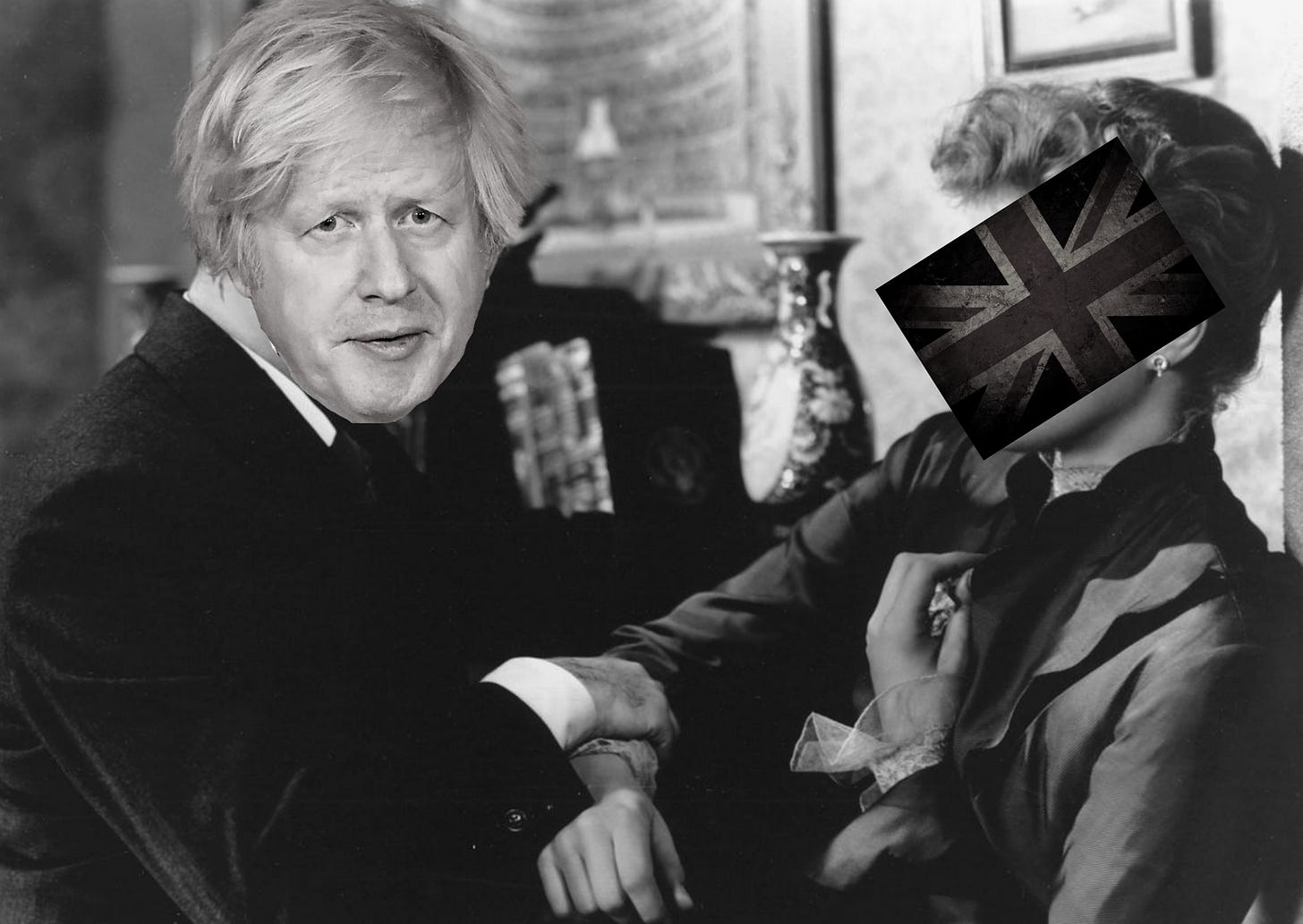Reading by gaslight: While critics are dismissed as trolls, columnists delight in the race report...
Isn't it convenient that it says what they were already thinking?
Previously on Conquest of the Useless:
1. “Cops are cool and Britain isn’t racist...” The establishment marks its own work and the newspapers swallow it.
2. A (Bad) Sign of The Times: Picking apart one newspaper's response to *that* report on racism


The three days since the publication of the Commission on Race and Ethnic Disparities report have been a boom time for Britain’s gaslighting industry, with a significant uptick in productivity.
Columnists, commentators, headline writers, and news reporters, who have been insinuating that claims about the level of racism in the UK are overblown for years, have a report that they can point to proudly. After all, it’s now official that there’s no institutionalised racism in the UK and any you previously thought you might have detected was just lens flare.
The latest example of pro-level gaslighting comes from Matthew Parris, former Conservative MP and full-time fulminator on the big issues, in The Times. Beneath the headline, Britain is on the right track in race relations, he offers a potted history of political enquiries before assuring his readers that the uproar around the report was just a matter of poor media management:
There is so much here that is sensible and interesting. But I believe its authors, and Downing Street, got the manner of its release, the timing and the tone wrong. It was well-intentioned but ill-judged to talk about the positives that had come after slavery. People are super-sensitive about slavery.
It was foolish even to enter the sterile debate about “structural,” “systemic” or “institutionalised” racism. This fast becomes a Jesuitical exercise in semantics. Better just to ask if (or where) racism is a big problem and leave the dictionary to academics. And it was a mistake to sex up the report in pre-released gobbets and a chairman’s foreword. It didn’t need dramatising: it needed calm study. The headlines inevitably attracted a ranting response from critics, with some idiotically comparing Sewell to Goebbels, and the whole thing now wallows in a sea of controversy.
The story linked in the paragraph above is ‘Race review chief Tony Sewell compared to Joseph Goebbels in social media abuse.’ It’s a classic element of any news cycle that involves strong criticism of a public figure the papers have decided to back — the finding and amplifying on the most strident comments to tarnish any and all critics as trolls.



The article, dual bylined to political reporter, Eleni Courea and Henry Zeffman, The Times’ Chief Political Correspondent, is a tricky piece of work, particularly the following paragraph:
On Wednesday night the Labour MP Clive Lewis tweeted a photo of a Ku Klux Klan member in response to a headline that said the commission found “no evidence of institutional racism”. He captioned the photo: “Move along. Nothing to see here. #RaceReport”. Priyamvada Gopal, a professor of postcolonial studies at Cambridge University, questioned Sewell’s credentials. She then tweeted: “Fair enough. Even Dr Goebbels had a research PhD.”
The story linked in the line referencing Lewis’ tweet is an unrelated report from October 2020 about a solicitor fined £30,000 by a disciplinary tribunal for groping a black secretary and running through his firm’s offices wearing a Ku Klux Klan hood.
Why is that story linked with Lewis’ tweet other than to imply some correlation? The inclusion of the link is a piece of snide conflation by The Times.
Meanwhile, Professor Gopal has been mentioned negatively by The Times some 14 times since 2018, with David Aaronovitch memorably snapping that she is “the Torquemada of the New Woke Inquisition”. Curious that a paper whose columnist legions spend so much time and ink on defences of ‘free speech’ is so obsessed with the words of one woman.
The structuring of Courea and Zeffman’s piece is also interesting. They put the sharp tweets by Lewis and Professor Gopal near the top, stripped of their context, while leaving other substantive issues until much later in the article:
Baroness Lawrence of Clarendon, whose son, Stephen, was murdered in a racially motivated attack in 1993, told The Guardian that the report risked “giving the green light to racists”.
Two researchers named in the report have disassociated themselves from it. Stephen Bourne, a historian of black heritage, said that he was “duped” by No 10 to attend a discussion without being told about the commission or its work.
SI Martin, a writer and historian, said he found out “to his horror” that he was listed as a stakeholder. He told The World at One on Radio 4:
“I have absolutely no association with the commission. The document attempts to press a sort of veneer of respectability on what are quite odious and divisive politics.”
It’s a great example of how news reporters can claim impartiality while showing through the structure of their pieces and their word choices that it is a myth.
The headline of the article could easily have focused on accusations that the report hijacked the names of researchers who did not support its conclusions or on the powerful words of Baroness Lawrence. Instead, it zeroed in on two tweets and tried to use them to imply criticism of the report was not legitimate.


Returning to Parris’ column, we find the familiar smooth dismissals of the issues and dissembling of the arguments in full effect:
We are not the United States; we have our share of clodhopping dimwits in the police but few are monsters. The news of an alleged “Nazi” officer this week is shocking because it’s unusual — as it might not be in America.
Black people make up 3% of the UK population but 8% of those who die in police custody are black. And those fine boys and girls in blue, of whom “few are monsters” according to Parris, are extremely good at ensuring none of their own gets punished when the ‘clodhopping’ ends up fatal. Since 1969, only one police officer has been jailed for the death of an individual in their custody — and they received a suspended sentence.
As Nazir Afzal, the former Chief Crown Prosecutor for North West England, wrote in The Guardian last year, that’s because…
…invariably, in such cases the only witnesses are other police officers; there may also be CCTV and some medical or forensic evidence. In the civilian world, friends will give evidence against friends in the most serious of crimes, but after three decades working in criminal law, I cannot recall a death-in-custody case where a police officer has given evidence against another police officer. Juries are loth to convict police officers generally, but the tendency is especially stark in these cases. One successful prosecution of an individual in 50 years tells its own story.
As Afzal also notes in that piece, deaths in custody only account for a small percentage of deaths following police contact.
In the year 2000, when Zahid Mubarek — a 19-year-old convicted of shoplifting items worth £6 — was murdered as he slept by his racist cellmate Robert Stewart at Feltham Young Offenders Institution, despite Stewart’s racist views being widely known, it was effectively a sub-contracted killing.
Those who want to buy the Commission’s report wholesale will dismiss cases like the death of Zahid Mubarek as outliers, things that ‘happened a long time ago’ which led to ‘lessons being learned’. But in the two decades since deaths in custody have continued like clockwork.
So when Parris writes…
Within a generation, racist talk has become unacceptable; we’d help younger black and white working-class boys best by focusing on education and training; and we’d be giving our politicians the right kind of push by protesting more about pitiful wages in low-paid jobs, than about racism.
… it’s impossible not to see someone who wants to strip conditions from context, to deny that issues within education and training have proven racist elements, that there are many systematic problems that Tony Sewell’s commission was designed to ignore, deny and minimise.


When Parris writes of “public unease at what often appear to be professional race relations spokespeople” he’s building the same strawmen that other columnists have played with all week.
They were there in Katharine Birbal Singh decrying the “tyranny of the woke mob” in The Daily Mail, Mercy Muroki pointing to a “race lobby… peddling lazy generalisations” in The Times (while simultaneously stuffing her piece with… lazy generalisations), and Sherelle Jacobs in The Telegraph howling about “the Left's ideology of racial victimhood.” Those are just three examples; there have been many to pick from.
Columns like Parris’s show that the Commission’s report is doing exactly what it was designed to do: Providing ammunition for people who were already arguing that Britain is basically fine. For strident defenders of the status quo, hearing that the country has no issue with institutional racism was a dream conclusion; they benefit daily from those institutions and it would be rather difficult at dinner parties if there was any unpleasantness involved…




